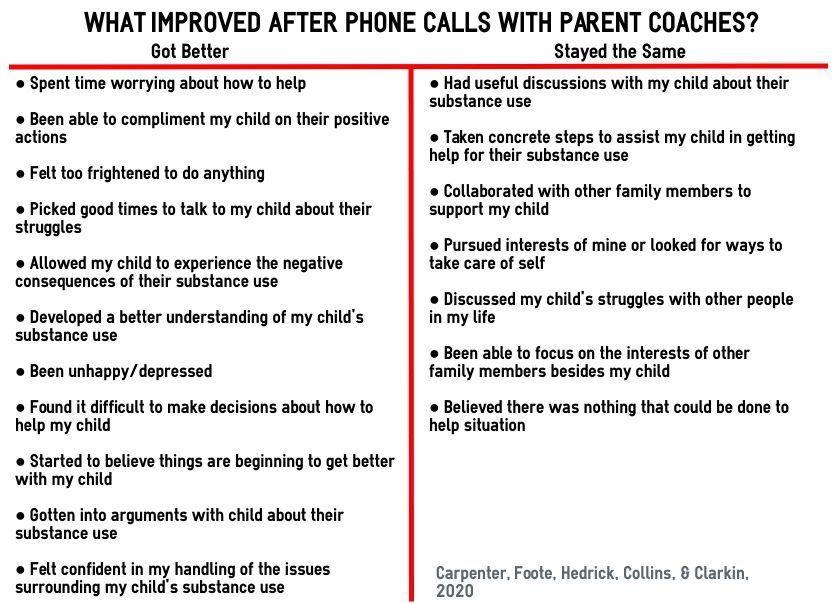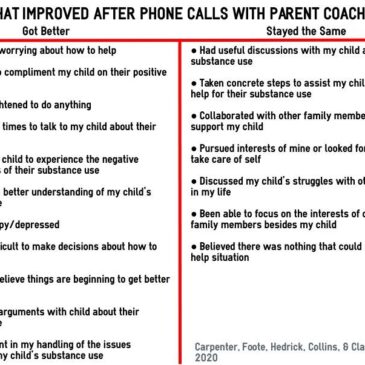Today’s review is part of our month-long Special Series on Community Approaches to Addiction. During this Special Series, The BASIS features innovative, community-based addiction interventions that are delivered outside the doctor’s office.
Family members of individuals suffering from substance use disorders can play a pivotal role in the recovery process. However, many do not know how best to help. In yesterday’s op-ed, Joanne Peterson introduced readers to her Learn To Cope organization, which connects parents who have experience handling a family member’s struggle with addiction to parents who desire support in dealing with the same problem. Peer-based counseling is part of a growing trend to use non-professionals who have been in the same situation to fill treatment gaps. As part of our Special Series on Community Approaches to Addiction, STASH reviews an evaluation by Kenneth Carpenter and colleagues of a program which trains volunteers who have previously helped their own children with substance-related issues to offer evidence-based counseling to parents whose children are currently attempting to overcome substance use disorder.
What was the research question?
Do parents practice more self-care and more effectively communicate with their children who are recovering from substance use disorder after conversing over the phone with trained volunteers who have been through an analogous situation?
What did the researchers do?
Eleven psychologists ran workshops for 228 “parent coaches” whose children had experienced a crisis due to substance use at least one year prior. The training was based on the Invitation to Change approach, an empirically supported therapy that outlines strategies for overcoming substance use disorders. The trainers provided guidance on how to relay these skills to fellow parents. Those volunteer parent coaches were then assigned to have five 60-minute phone calls with 279 parents who had previously called a helpline with regards to their children’s substance use problems.
What did they find?
Almost all parent coaches found the workshops educational and worthy of recommendation to other parents. Parents who received phone calls from parent coaches were also enthusiastic about the experience. Relative to before they spoke with a parent coach, parents of children with substance use disorders reported better relations with their child and more confidence that matters would improve. However, they did not report having taken more concrete steps to assist their children with getting help for their substance misuse.

Figure. The above table shows the survey questions to which parents responded before and after having phone conversations with a parent coach. Substantially more parents reported an improvement in topics on the left after the phone conversations with a parent coach than reported a turn for the worse. The items on the right represent topics in which the ratio of parents that reported better outcomes after the phone conversations to those that reported worse outcomes was not greater than chance. Click image to enlarge.
What do these findings matter?
The results imply that trained volunteers can improve the morale of parents who otherwise probably would not receive any evidence-based guidance for helping their child overcome a substance use disorder. That parents did not engage in more specific actions to help their children after the phone conversations point to potential limitations in what benefits trained non-professionals can confer.
Every study has limitations. What are the limitations of the study?
About half of participants who talked to a parent coach did not complete a follow-up survey; they may have had worse outcomes than participants who did the complete the follow-up survey. Moreover, improvements reported at the follow-up might have occurred even without the program if their circumstances happened to improve in the meantime.
For more information:
If you are worried that you or someone you know is experiencing addiction, the SAMHSA National Helpline is a free treatment and information service available 24/7. For more details about addiction, visit our Addiction Resources page.
— William McAuliffe, PhD
What do you think? Please use the comment link below to provide feedback on this article.




